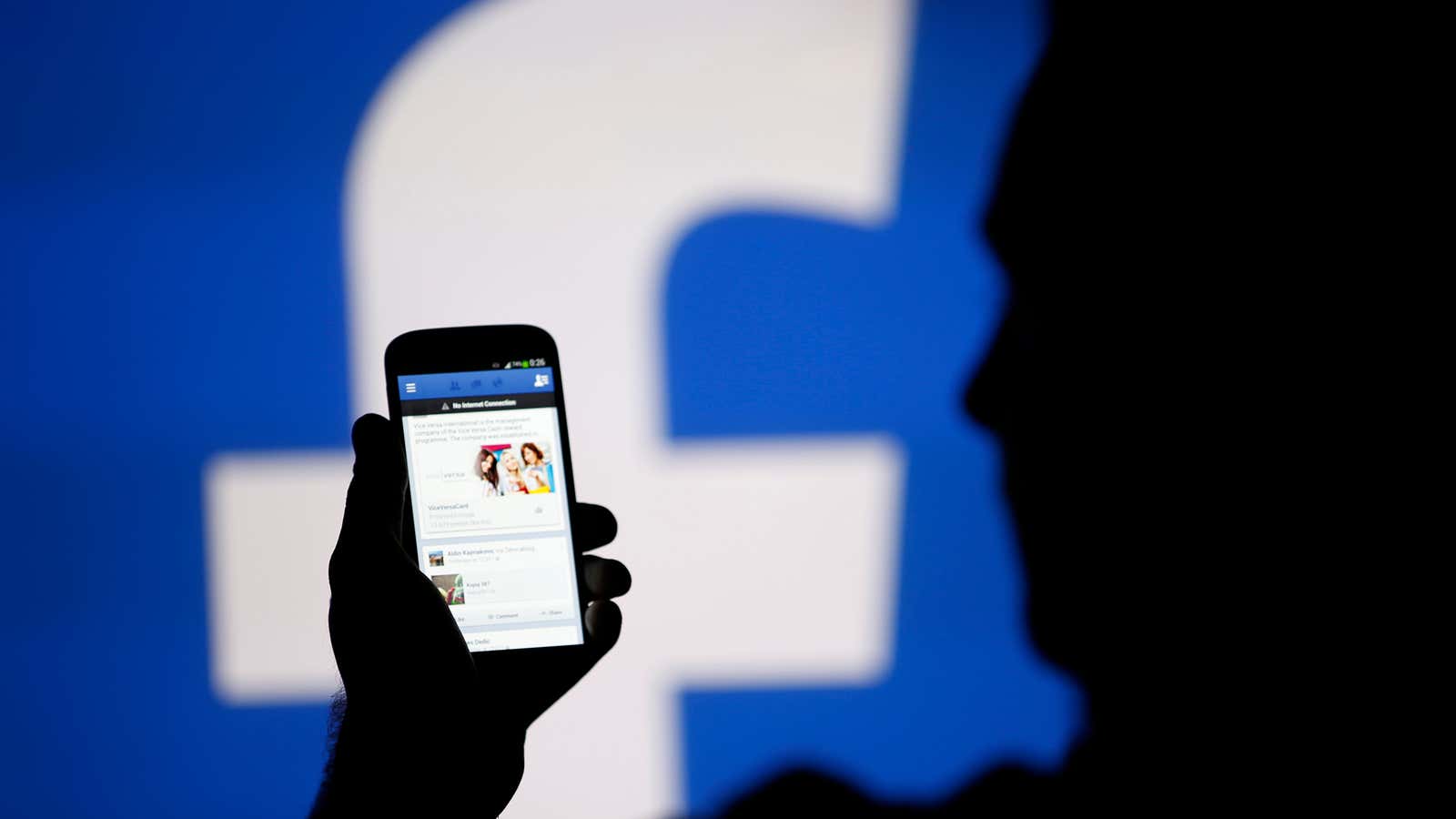Hey guys. All of you know me, although many of us haven’t talked in years. Honestly, some of us never talked much in the first place, but Facebook came out while we were in college and everyone was friending everyone and so here we are, almost a decade later, with you knowing about every book I read, and me knowing what time of day your baby poops. C’est la vie. (Also, hi grandma. I still don’t want to play Mafia Wars with you; I’m not even sure you realize you’re sending those invites. But thanks for being here all the same. Say hi to grandpa for me.)
So just a quick heads up. Facebook, which has long been cagey about the secret sauce behind News Feed, basically said yesterday that its algorithm (don’t worry about it, grandma) will start favoring posts from friends and family members over posts from publishers. Generally speaking, that means News Feed is more likely to show you the photo I put up of my cats (ugh, so cute) than the story Quartz (my employer) posted about the airport attack in Istanbul.
On its face, this may not bum you out: Maybe you’d rather see my vacation photos than read about mass shootings. Maybe you’d rather watch viral videos of dogs popping balloons than worry about the election. I get it. The news is exhausting, and repetitive, and often needlessly outrage-prone. Everything is a big debate these days, especially on Facebook, and I understand if you wish the social network could just be a safe space to stalk ex-boyfriends and post disingenuously flattering photos. I feel you; I liked Chewbacca mask lady too.
We can also debate whether news even fits in with Facebook’s core mission. At the Huffington Post, Emily Peck argues that it kind of doesn’t. After all, we used to visit news outlets directly (in print, on television, online) for current events. Then Facebook blew up, so publishers started showing it love, and Facebook showed love back. Meanwhile, we all started posting less personal news and now Facebook is, as Peck describes it, “overwhelming and corporate.” “If you think about the level of discourse on Facebook, you’d have to realize that getting our news on a social network is a dubious, possibly even dangerous, proposition,” she writes. “I’d much rather spread the idea that my kids looked extremely adorable last weekend.”
Here’s the thing, though: People do get their news on social networks, dubious proposition or not. A report from the Pew Research Center in May found that 44% of Americans get news from Facebook. Sure, that’s enabled a worrying and sometimes all-consuming tug of war between publishers’ resentment of Facebook and their reliance on its benevolence, but this new normal is already well established. We’re already here. The industry that brought us Watergate and Spotlight (and, admittedly, The Dress) must now watch its headlines compete with photos of babies wearing oversized sunglasses. Facebook is an enormous source of traffic for a great number of news outlets, and traffic (among other things) equals revenue, which equals a sustainable business model for journalism in a probably-soon-to-be-post-print world.
So here’s what I need from you: I need you to share news you think people should know about, and post examples of journalism you love. Boston Globe social media director Matt Karolian said that Facebook’s announcement means it will be “more and more important for outlets to publish content that allows readers to start conversations with their friends,” and I agree completely. Likewise, it will be more and more important for people on Facebook to start conversations about issues that matter. That means you guys.
So this is to be a contract between us as Facebook friends, an oath resting on a mutual respect befitting the relatives/friends/acquaintances/people who went to middle school together that we are. I will look at, like, react to, comment on, and share your engagement announcements, jogging statuses, baby photos, and retellings of charming conversations with strangers at Starbucks. But you in turn must help make Facebook a good place for news. It’s easy—all you have to do is share some.
